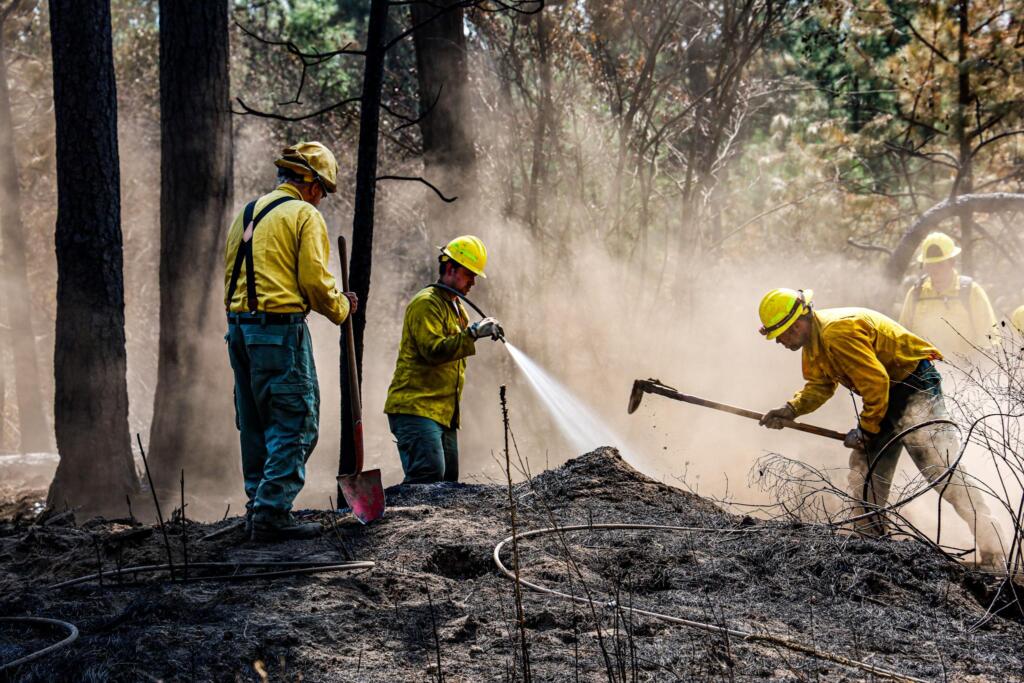SPOKANE — It has been one roadblock after another for residents of Medical Lake and Elk in the first five months of recovery from the Gray and Oregon Road fires, Dick Ziehnert told Congresswoman Cathy McMorris Rogers and other officials during a roundtable Wednesday.
Ziehnert is vice chair of the Spokane Region Long Term Recovery Group, a nonprofit that works with governments and community organizations to aid recovery efforts.
For four days after the fire, people were evacuated and unable to return home and see the state of their property. There were extensive rumors of looting, he said.
“They didn’t know what they were going to see when they went back home,” Ziehnert said.
When residents were able to return, they were told they couldn’t touch the piles of rubble until mandatory asbestos testing and mitigation was completed. Most insurance only covers about $10,000 of cleanup, causing the debris removal to eat up insurance money needed elsewhere, he said.
“It took the cash from their insurance, and now it has been spent on mitigation,” he said. “They still have a mortgage, and the bank still wants to be paid on a house that’s not there.”
And all of that was if residents could get someone to come out and do the testing. In some cases, people waited two to three months to get samples collected, he said.
“The system was not ready to accommodate that,” he said.
While Gov. Jay Inslee did set aside funds to help with debris removal, those funds are first allocated to the uninsured, Ziehnert and other officials said. The same goes for many of the other available funds, but most people were grossly underinsured, in part due to recent rapid inflation, said Terri Cooper, Medical Lake mayor and chair of the recovery group board.
In some places, the fire burned so hot it compromised septic tanks and wells, creating even more expenses for homeowners ahead of rebuilding, he said.
For people who had insurance but not enough to rebuild what they had before, there’s little aid, Ziehnert said.
“You’re kind of on your own,” he said people with insurance were told.
The problem is made worse by the lack of a decision by President Joe Biden on whether to issue individual aid to residents through FEMA, those at the roundtable said.
McMorris Rodgers and Sen. Maria Cantwell sent a letter to Biden Monday asking for an update on potential aid for victims of the fires.
“We just need a decision — up or down, just give us a decision,” said Al French, Spokane County commissioner. “In the absence of a decision, we’re sitting here with no direction.”



